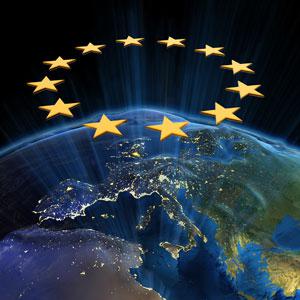
EU, Dawn of a New Age?
Written by Iakov Frizis and Arion Thoksakis
The world does not need any more ideas or suggestions. As Aristotle argued, what is to be discovered in the world, it has already been deliberated and most probably discovered long ago. What the world needs today is solutions. It does seem rather contradictory to talk, in a time of crises, as such, for hypothetical scenarios that seem not feasible in today’s reality.
In that sense, there needs to be more problem solving and less theorizing. This goal could be achieved through the economization of politics. Only then will politics obtain a more direct problem-solving character. Nevertheless, to keep a balance, if a spill over from economics to politics is to take place, then this is imperative to be followed by an opposite’s causality spill over, from politics to economics. Through this science-interaction process, it can be assured that the individual’s dignity will not be eroded through the incapacity of market forces in delivering equity. Furthermore, it is only through the political interaction that important concepts for the individual’s identity, such as community, can be preserved. In a market society, which can be characterized as a profit driven environment, every sense of community is abolished, as irrelevant to the values that prevail within the society.
The modern debate should concentrate on immediate action. While taking under consideration the current case study of European malfunctioning, if the European Union is to be sustained, then its leaders need to act today! The union has two options in this particular bifurcation point.
The first one refers to European devolution. Based on this concept, member-states choose not to abolish any more sovereignty, while the common currency (monetary union) plan is abandoned. This will lead to the operation of the European Union as a mere common market. Through this devolution, there might be some costs incurred by the member-states, yet the malfunction of the European creation will be solved.
The alternative to the above plan is for the EU to move towards political unification. The political unification of the European Union can be initiated through the creation of an assembly, which will operate as a supra-national sovereign over the member-states. This assembly will be composed of state-representatives. Each member-state will be entitled to equal representation as any other member. Through this, European-wide domestic legitimization of the institution will be achieved. Once the above reforms have taken place, the member-states can negotiate the creation of a fiscal union, a reform that most economists advocate as vital for the sustainable growth of the Union. This idea is based on optimum currency area theory, which states that a monetary union cannot be sustainable, due to growth rate inequalities of different regions within the common currency area. In order to balance these inequalities, there needs to be perfect mobility of factors and a fiscal union.
One comparison that can be used was the creation of the United States where optimum currency theory area was developed. The fiscal policy during the first decades of the United States existence was governed under the Articles of Confederation (AofC). Under these articles, the power of the central (supranational) government was limited. Implementation of decisions was devolved to the individual States who maintained control over their own fiscal, foreign and trade policies. The AofC turned out to be unattainable since there was no national cohesion on monetary policy as well as a supra-national entity to govern the various competing interests. One large difference between the European Union and the United States was that the individual states had a common language and culture which later helped influence the formation of a national federal government under the Constitution. The European continent presents more cultural and linguistic variations than the U.S.A. Even so, it can be argued that there still is enough basis for an optimum currency area to be developed. Therefore, it is Important to stress the priority for a European political unification, over European fiscal unification, which can be justified in terms of legitimacy of action.
To conclude, any actions that intend to “buy some time” for reform, Germany and the other Eurozone countries, will have to allow a rise of inflation. Inflation may not be the most preferable choice, though at this point it seems the only choice. A right manipulation of inflation will offer a short-term balance of the economic values, injecting some stability in the markets. Inflation results in the transfer of wealth from savers to debtors. This will put the countries of the South (Spain, Italy, Greece, Portugal), who face financial difficulties, to a better position. Nevertheless, since inflation damages the savers, countries of the European North, will inevitably incur costs.
